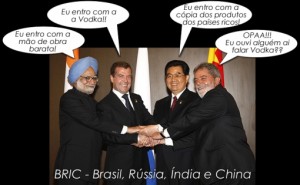Six percent IOF tax exempted from foreign loans
The Brazilian administration is rolling back curbs on foreign capital imposed in the past 19 months after the real posted the biggest loss of any major currency this year.
The government exempted foreign loans which matures in more than than two years from a 6 percent tax to help companies and banks rollover debt, said Finance Minister Guido Mantega. The financial transaction tax was before charged on loans taken abroad maturing as many as five years.
The tax was one of a series of measures taken to weaken the real and protect exporters from what Rousseff dubbed “a monetary tsunami” unleashed by rich nations seeking to devalue their currencies. Mantega said today that the “excessive liquidity” that led to capital controls ended with the worsening of the European debt crisis.
“Before the crisis worsened, it was easier to have access to long-term credit,” Mantega told reporters in Brasília. Brazilian banks and companies “need to rollover loans taken in the past, and this makes it easier.”
After being the best performing major currency in the first two months of the year, the real reversed course and plunged, raising concern the move could stoke inflation as imports became more expensive.
Growth Forecasts and GDP review
Economists covering the Brazilian economy reduced their 2012 economic growth forecast for a fifth straight week on June 8. The world’s biggest emerging market after China will expand 2.53 percent this year, less than the 2.73 percent growth rate posted last year, according to the median estimate in a central bank survey of about 100 analysts. GDP Preview: The IBC-BR recorded a high of 0.22% in April compared to March, which means that the economy is growing again. The above data was reviewed. In March, a drop was 0.61%, in February, up 0.56% and in January, down 0.38%.
New stimulus package
Government announced a further package – The government today announced a line of credit to the states, through BNDES, which can reach $ 20 billion. Expectations are that the new credit lines increase investment to stimulate the economy.




